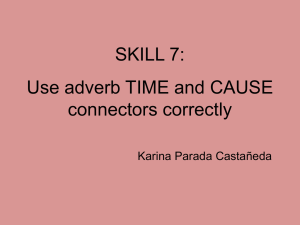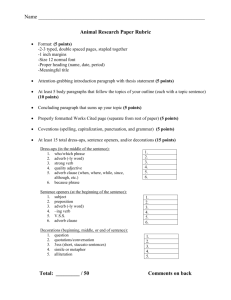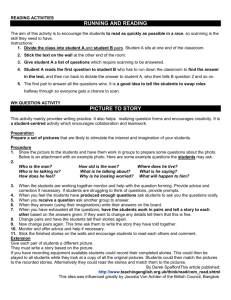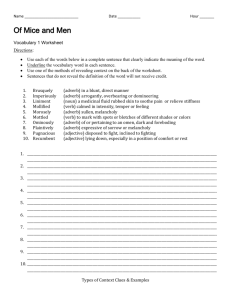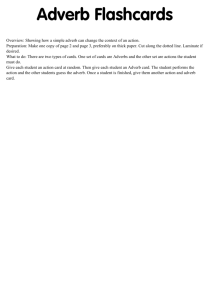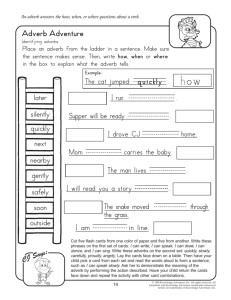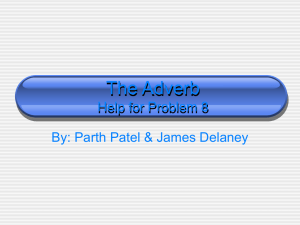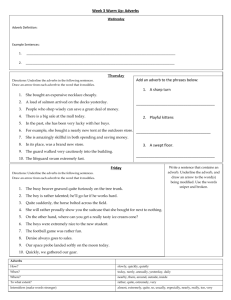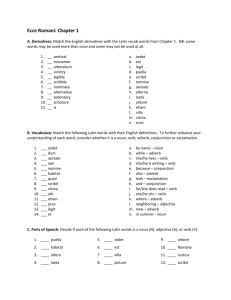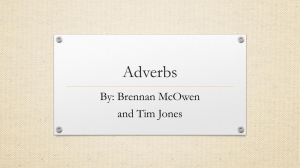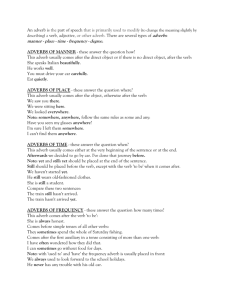Freer Practice Activities for ESL/EFL Learners
advertisement
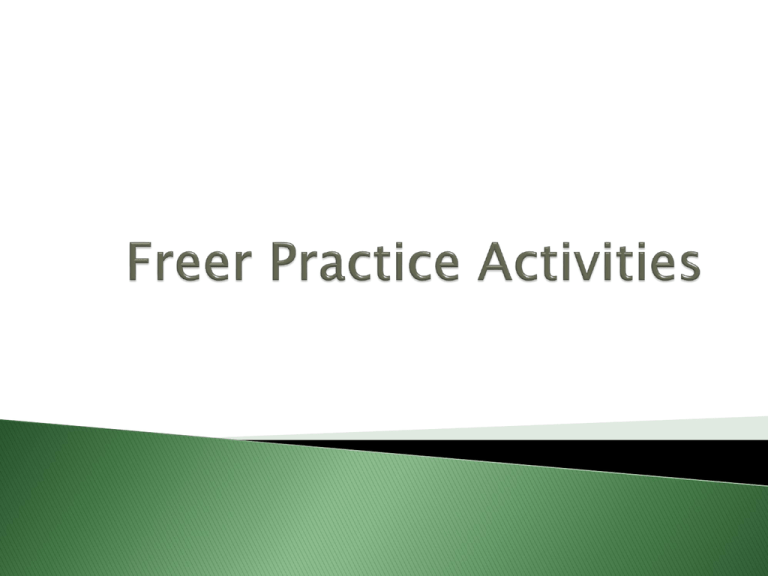
Task description: Each student writes a description of someone in the class. The descriptions are read out, or Ss read each description in a gallery read. Then everyone guesses who the person is What language is it practicing? Why is it ‘freer’? S/he is….. S/he has…. Comparatives: She is taller than…… Adjectives (tall, fair, etc) Body vocabulary -Students choose who and what to describe. -Students produce and respond to the language. Teacher monitors and listens. -Not ‘Free’ because teacher provides the structures and vocabulary ‘bank’. 2.What are you doing? Each pair of students sits back to back and takes it in turns to ask questions about what the other person is miming. The person miming the actions can only answer ‘Yes’ or ‘No’. 3.What’s my line? Each pair of students thinks of a job and mimes an action that is typical to that job. The other student asks Yes/No questions until they guess the job. 4.Coffee Pot One student thinks of something s/he often does, e.g. have a shower. Other students ask questions until they find out what the person is thinking of. Because they don’t know the verb, they use the words ‘Coffee Pot’ for the verb in their questions. For example, ‘Did you ‘coffee pot’ this morning?’ 5.The adverb game One student thinks of an adverb. Other students then ask him/her to do things to find out what the adverb is. For example, if the student is thinking of the adverb ‘slowly’ and someone says ‘open the door’, s/he must mime opening the door slowly. In groups students prepare a survey on the topic:‘Are you a good language learner?’ For example: Do you do the homework the teacher gives us? a. always b. sometimes c. never Students ask and answer. Then they return to their groups to share the results and prepare a presentation of what they found. Write 6 sentences about your typical daily routine. Some sentences should be true and some should be false. Work in groups of 3. Take it in turns to read out one sentence each. Guess which are true and which are false. If you are not sure, ask them some questions. In pairs, ss try to find 3 things they have in common, i.e. dislikes, likes, experiences, habits. Then they report back to the class/another pair or to a small group. Morning Monday Tuesday Wednesday Thursday Friday Afternoon This is your diary for next week. Fill in 5 of the spaces with arrangements you have made, e.g. dental appointment, English lesson, etc. You need to arrange to meet 2 friends. Work in groups of 3. Use your diaries to find a time when you can meet.
